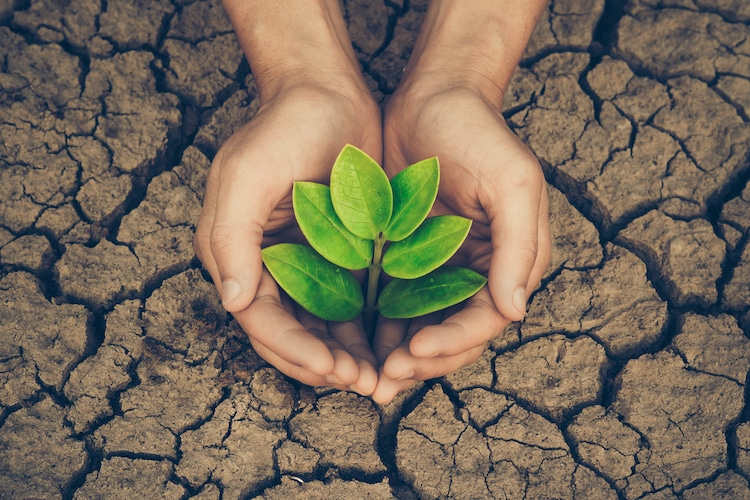
Stock Photos from wk1003mike/Shutterstock
This post may contain affiliate links. If you make a purchase, My Modern Met may earn an affiliate commission. Please read our disclosure for more info.
With so much being said about climate change and how it’s affecting our planet, it can be hard to understand how a single individual can make a real impact. But the reality is that it’s much easier than you may think to incorporate eco-friendly habits into your daily life. While these actions may seem minor, the truth is that they can lead up to big consequences.
To help make a positive step in the right direction, we’ve put together a list of 20 simple actions anyone can take to help save our planet. By taking matters into our own hands, we can collectively do our part to ensure the health of our environment for future generations. Read on for these easy to execute ways to help the environment and start making an impact today.
This infographic gives you easy ways to help save the planet, one day at a time.
Share This Infographic on Your Site:
Want to make an impact on the environment? Here are 20 small changes you can make to do your part.

Stock Photos from ben bryant/Shutterstock
Shorten Your Shower
While showering certainly saves more water than taking a bath, you can still make an impact here. Rather than leisurely scrubbing away, be a bit more mindful about how much time you are spending the shower. Cutting down your shower time by 2 minutes can save over 10 gallons of water. This will also save on the energy needed to heat the water. Another good technique is to simply turn off the shower while you are shaving or lathering your shampoo, as every second helps.
Turn Off Your Computer at Night
How many of us simply close our laptop or turn off the screen to our desktop each evening? Turning off your computer at night can help save energy, and also put a little bit of money back in your pocket. If you’re worried about how powering down might affect your computer’s performance, place it in hibernation mode instead. And while you’re at it, check your power strips and unplug appliances like hairdryers and TVs that suck energy even when they aren’t on.
Use Paper Wisely
For those times when you can’t get away with going paperless, make sure that you don’t let any of the paper you do use go to waste. If possible, print on both sides of the sheet and if you’re taking handwritten notes, use every inch of what’s available before moving on to the next page.
Cut Down on Junk Mail
Junk mail isn’t only a nuisance, it also accounts for a huge amount of waste. From paper phone directories to unwanted catalogs, these wasteful mailings use nearly 100 million trees a year in the U.S. alone. Luckily, there are a number of services that can help you opt-out of junk mail. Use Yellow Pages Opt-Out to stop receiving automatic phonebook deliveries and DirectMail.com to remove yourself from direct mail registries. Services like CatalogChoice.org and PaperKarma can help get your address removed from catalog listings.
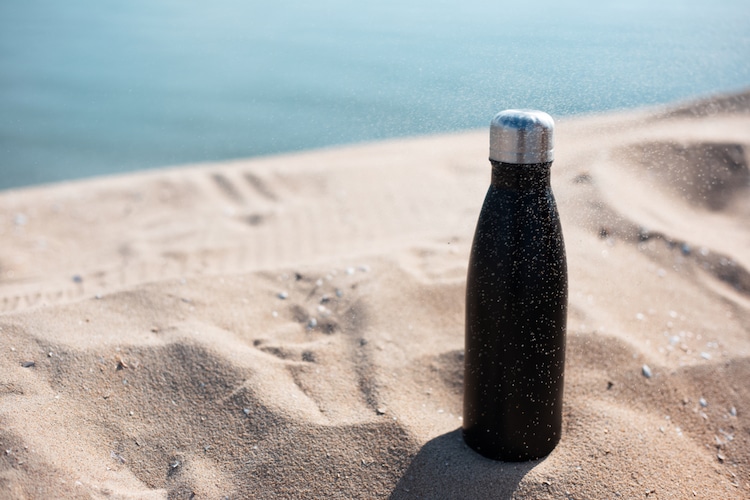
Stock Photos from Andrew Ivan/Shutterstock
Stop Running the Water When Brushing Teeth
Just taking a moment to turn off the faucet when you’re brushing your teeth can make an impact. In fact, it can save up to 5 gallons of water a day. This would translate to 1.5 billion gallons across the U.S. if everyone made the switch.
Go Meatless at Least One Day a Week
Many people are doing meatless at least one day a week in an effort to save money, eat healthier, and help the environment. Why? Ground beef often comes from cattle raised on deforested land. By cutting the demand for beef, you are helping save important areas like the Amazon rainforest.
Buy a Water Bottle
The demand for bottled water is on the rise, but did you know that 90% of those plastic bottles don’t end up getting recycled? Particularly if you live in a country where tap water is drinkable, there’s no reason not to invest in a refillable water bottle. Whether you’re filling it at the faucet or a water cooler, you’re making a change just by reducing the amount of plastic thrown in the bin daily.
Be Thoughtful With Your Laundry
No more half-empty wash cycles! Make sure you’re putting a full load in the wash, even if that means doubling up with a roommate or family member. By making sure the washing machine is fully loaded and running on cold, instead of a warm, cycle, you are already making a difference. Running a full cycle can save 3,400 gallons of water a year while using cold water cuts down on carbon dioxide emissions.
The type of cycle you run also matters. Researchers in the UK discovered that a delicate wash releases 800,000 more microfibers than a regular cycle. These are non-biodegradable plastic fibers that enter our waterways and are currently causing damage to our oceans and marine life.
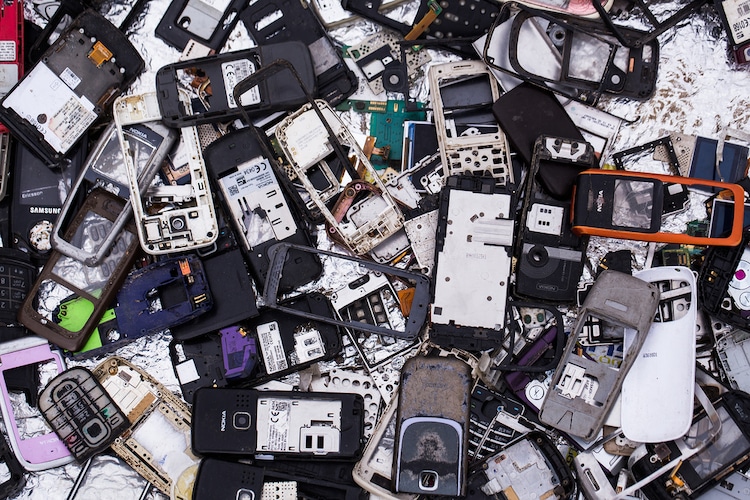
Stock Photos from Volodymyr Tverdokhlib/Shutterstock
Recycle Cell Phones
While we all love having the newest iPhone or Android model in our pocket, the constant turnover means that 130 million cell phones are being disposed of annually. Make sure they don’t end up in a landfill—where battery leaks can spill toxins into the environment. You can recycle your cell phone. Recycling just 1 million cell phones would save enough energy to power 185 U.S. homes for an entire year. It’s fairly easy to do, as many carriers will let you trade-in or recycle your phone. You can also be on the lookout for an ecoATM, which gives rewards for turning in your tablets and phones.
Recycle Hangers
Many of us end up with more wire hangers than we know what to do with, but most local recycling programs won’t accept them. But, there’s a solution that’s easier than you may think. Most local dry cleaners will gladly accept wire hangers to reuse them or sell them to scrap metal collectors.
Buy a Reusable Grocery Bag
We all know that single-use plastic is a huge issue. And while more and more laws are being enacted to ban plastic bags in grocery stores, you don’t need to wait for that to happen to take action. There are tons of options for cool durable shoppers that will actually do a better job of getting your groceries home—just think, no more plastic bag breakage.
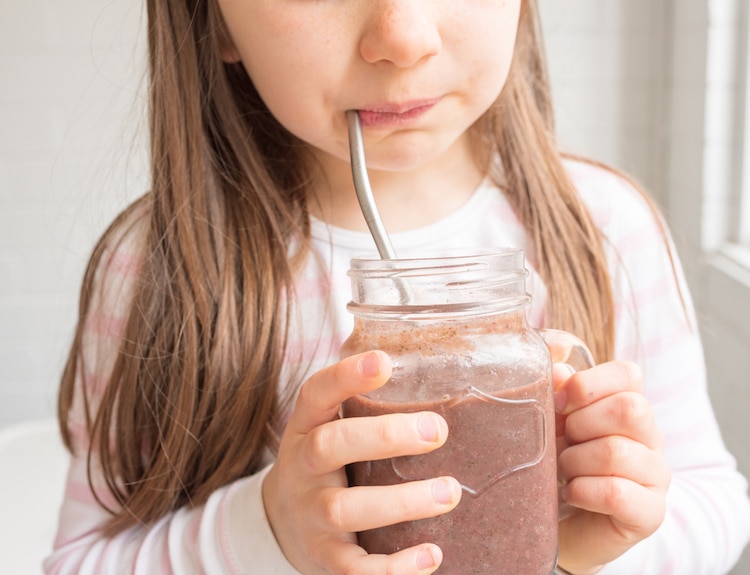
Stock Photos from Natalie Board/Shutterstock
Use E-tickets
Take advantage of technology and move away from paper tickets. Whether you’re going to the movies or boarding a plane, most services accept e-tickets. This can be in the form of showing an email or a virtual ticket downloaded to a smartphone app or e-wallet.
Get a Reusable Straw
In the fight against single-use plastic, a straw can seem harmless, but the reality is that they’re rarely recycled. In the UK alone, over 8 billion plastic straws are thrown out annually. More and more businesses are stocking alternatives to plastic straws, but you can get ahead of the game by purchasing your own reusable straw. There are plenty of options available, including metal straws that conveniently collapse for easy travel.
Select Paperless Banking
We all have an email these days, so why not use it to save paper? With the click of a button, you can go paperless and receive your bank, credit card, and student loan statements digitally. And while you’re at it, when at ATMs you can make the eco-friendly choice and go without a printed receipt.

Stock Photos from HollyHarry/Shutterstock
Use Rechargeable Batteries
The corrosive acid found inside of batteries causes a real problem at landfills, where it can end up infiltrating the soil. If this isn’t enough of a reason to switch to rechargeable batteries, consider that in the longterm, they also help save money.
Ditch Paper Gift Wrap
The next time the holidays or a birthday rolls around, get creative with your gift wrap. Traditional wrapping paper is often laminated, which makes it difficult to recycle—and we produce 4 million pounds of it annually. Why not be more innovative and use newspaper or fabric to wrap your gifts?
Consider Cloth Diapers
Did you know that in the United States alone 27.5 billion disposable diapers end up in landfills every year? And unfortunately, they can take a mind-blowing 500 years to decompose. Aside from the incredible amount of plastic they generate, over 200,000 trees a year are cut down to manufacture just the diapers needed in the U.S. That’s why more and more parents are turning to cloth diapers for their children.
Not only do they reduce waste, they also end up costing families less in the long run—on average $660 for your first child and $1,300 for your second child. There’s even evidence that cloth diapers cut down on diaper rash and make it easier to potty train, so it’s a win-win all around.
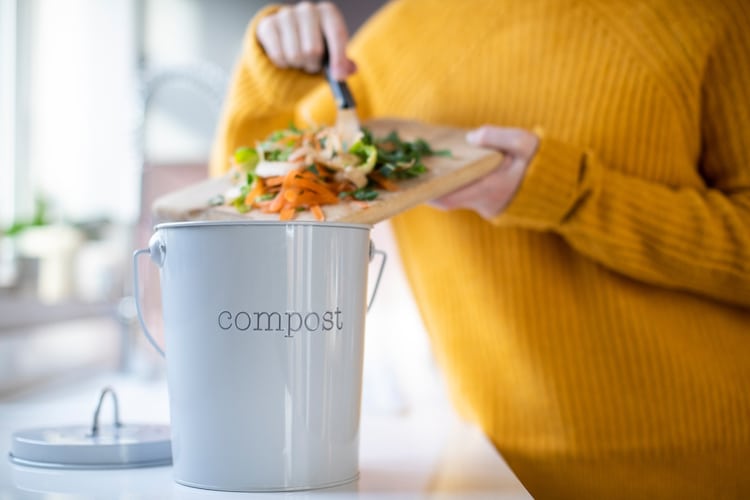
Stock Photos from Daisy Daisy/Shutterstock
Reduce Food Waste
Being more mindful about how much you purchase at the grocery store can cut down on a lot of waste. And at home, think about what you can freeze or how leftovers can be transformed into other dishes. You can also call your local food bank to learn more about how they take donations.
Start Composting
Yes, composting is great for your garden but that’s not all. Food scraps and yard waste account for 25% to 50% of what we throw away, so composting can greatly cut down on what ends up in landfills—one of the biggest sources of greenhouse gases. Compost also contributes to biodiversity by attracting all types of insects and worms and enriches soil quality. If you are in an urban setting or a small apartment, you can still compost. Purchase a countertop composter for food scraps or make your own indoor compost bin from materials you can find at any hardware store.
Shop Wisely
Even the small decisions you make when shopping can have a big impact. Typically, household cleaners contain chemicals like nitrogen, phosphorus, and ammonia that can cut grease and sanitize surfaces. But they can also create unsafe air conditions in the household and make their way into waterways, which winds up depleting oxygen levels for plants and marine life. Try switching over to non-toxic, plant-based household cleaners that do the job without the hazard. This thinking can extend to any item you purchase, from sunscreen to shampoo.
This article has been edited and updated.
Related Articles:
Here Are Ways That Anyone Can Help Protect the Amazon Rainforest
18 Eco-Friendly Products to Reduce Waste in Style
Brilliant Packaging Made Entirely From Vegetables Is Completely Compostable
Eco-Friendly Company Saves on Plastic and Water Waste By Creating Solid Shampoos

